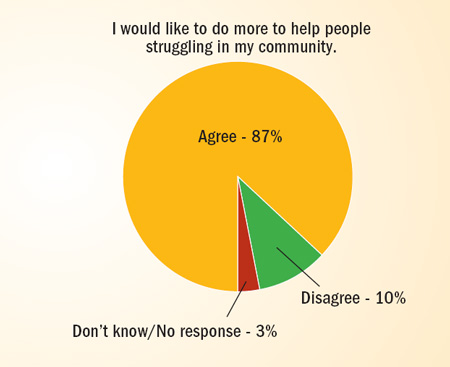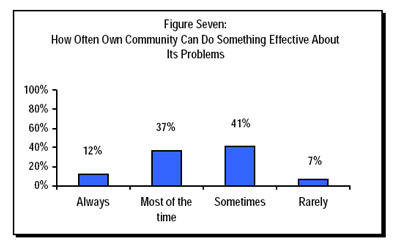I’m reviewing the national poll released today by the Northwest Area Foundation. MPR’s Greta Cunningham has a blurb about it here. The headline suggests widespread worry in Minnesota, noting that nearly a third of those polled are worried that their incomes won’t cover expenses this year.
In rural Minnesota, 71 percent of those surveyed rate the economy fair or poor. The rest of the report is filled with anxiety.
But then there’s this:

It would seem that if the 87% who would like to do more, actually did more, then not quite as many people would be struggling. Armed with only anecdotal evidence, I’m going to theorize that 87% of the people are not going to do more and a sizeable number aren’t doing that much now.
Why not?
Maybe the answer is in this graph, which takes into account the answers of all the respondents in the northwest area.

Maybe we don’t think our help will make a difference, so we don’t “do more” to help. Or maybe we each speak a different language when it comes to “doing more.” A closer look at the survey shows that a large percentage said they would be willing to get together to talk about ways to help. Others said they would be willing to talk to an elected official. Seventy-eight percent said they would take part in a church project to help someone. A somewhat smaller group said they would adopt a family temporarily if they were struggling. About the same number said they would pay another $50 in taxes.
Times are tough for a lot of people, of course, but could it be different if we did as we say? As individuals, what’s stopping us, aside from our belief it won’t make a difference? And what do you consider to be a definition of doing something?
